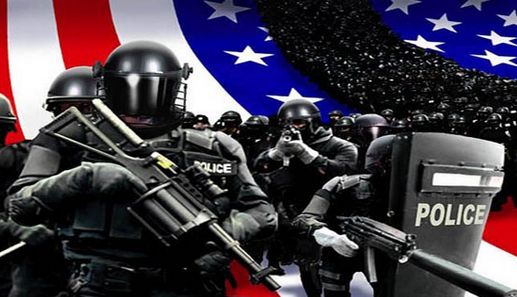“To Protect and Serve”—But Who?
When Handcuffs Turn Into Love Bracelets: The Curious Case of Stockholm Syndrome Among Police Officers
Perhaps, if governments invested as much in their police forces as they do in their propaganda, we’d see officers who are as keen to protect their citizens as they are to protect their own dignity.
by Morris Wambua | Staff Writer | Eternal Affairs Media
The recent wave of Gen Z protests has shone a glaring spotlight on the deep-rooted rot in policing culture, exposing systems more concerned with maintaining power through force than protecting the very citizens it’s sworn to serve. How about the dire situation faced by state security operatives conventionally used as tools in the hands of despots to unleash state terrorism on those holding dissenting views?
In the dimly lit quarters of police barracks across places like Nigeria, Kenya, and Bangladesh, there seems to be an unusual romance brewing—a twisted love affair between law enforcers and their captors despite the deplorable living conditions they endure. Far from the cozy quarters of sitcom cops, these officers wake up to creaky beds, cracking rusty walls, and a cacophony of complaints from the very citizens they’re sworn to protect. But why should they complain? With salaries so meager, it’s clear these police officers are really working for the “love of the job”—and by “love,” we mean the love of unpaid overtime and the occasional free coffee. While their bosses have a lot of money at the end of the month, these officers have a lot of month at the end of their money. After all, who doesn’t enjoy the occasional rat racing across their feet or a leaky roof for a refreshing midnight shower amidst nightmares characterized by Kenya’s sensational tune Anguka Nayo, or the Nigerian slogan No gree for anybody and the chants of Who are you in Bangladesh? Yet, something more insidious is at play. The officers, it seems, have developed a psychological affinity for their grim reality, akin to what experts might diagnose as Stockholm Syndrome—except in this case, the captors are the societal systems and governance that have failed them.
Love is a Battlefield: Stockholm Syndrome in the Line of Duty
Sociologists have long studied deviant behavior in society, and the latest trend among police forces calls for some serious head-scratching. How do we explain officers who, despite their maltreatment, seem to act out the very brutality they suffer? Is it possible that the violence they unleash on citizens is an unconscious effort to bond with their oppressors?
Enter Emile Durkheim, who, with a raised eyebrow from the great beyond, might see police brutality as a case of “anomie,” where officers, stripped of moral guidance by their surroundings, drift into deviance. In a world where they are abandoned by the state, they replicate the very violence they’re subjected to—only this time, it’s the citizens who bear the brunt. Quite sad.
“To Protect and Serve”—But Who?
In Nigeria, recent events have highlighted a troubling trend where officers, often found in dilapidated stations with no running water and barely functioning vehicles, have been involved in a string of high-profile brutality cases. One might wonder if they’re taking out their frustrations on the public. It’s highly doubtful they could cook the same rice that was dished to their civilians without feeling a dent in their pockets. Or perhaps, they’re just following the golden rule: “Do unto others before the government does unto you.” Kenya, too, offers a startling tableau. Police forces housed in buildings that should be condemned by the health department are asked to maintain law and order. Is it any wonder that they might misinterpret “law” as “lawlessness” and “order” as “ours to impose”? Is it any wonder that they target journalists, brutalize people with disabilities, and shoot at unarmed civilians with stinking impunity? When you see them unleashing their martial arts skills on journalists, treating medical personnel as combatants, and teargassing everything that moves what comes to your mind? And let’s not forget Bangladesh, where the force’s motto might as well be, “A slap a day keeps the frustration away.” Here, officers, squeezed into tiny, overcrowded dorms, seem to have mistaken their truncheons for wands—except these wands don’t cast spells of protection, but rather, of pain.
From Barracks to Burlesque: When Reality Gets Comical
Satirists could have a field day with the absurdity of it all. Imagine, if you will, a romantic comedy set in a police barracks. The love interest? Why, it’s the very crumbling infrastructure itself. Picture officers serenading their broken-down squad cars, or perhaps a Romeo-and-Juliet-inspired scene where an officer declares his undying love for the mold creeping up his barracks wall. But behind the satire lies a harsh reality. The officers’ behavior, as twisted as it seems, is a mirror often reflecting the neglect they suffer. By lashing out, they’re not just enacting violence—they’re crying for help.
Deviance by Design: The Sociological Perspective of a Failed System
The Theory of Alienation
Marx might chime in with his theory of alienation in view of police officers, alienated from their humanity and reduced to mere tools of a repressive state, rebel against their conditions the only way they know how—by exercising the very power that oppresses them. It’s a vicious cycle in that the more they suffer, the more they brutalize; the more they brutalize, the more society despises them, further deepening their alienation.
Labelling Theory
Labeling theory also comes into play. Society labels these officers as brutes, and, over time, they internalize this label, acting per it. But what if, instead, we labeled them as victims of a broken system? Would they then rise to the occasion, or is this syndrome too deeply ingrained?
The Road Ahead: Breaking the Chains
The question remains: can the chains of this metaphorical Stockholm Syndrome be broken? Perhaps, if governments invested as much in their police forces as they do in their propaganda, we’d see officers who are as keen to protect their citizens as they are to protect their own dignity. Until then, the romance continues—a tragic love story between officers and their unforgiving circumstances. And as they say in the movies, the rest is history… or rather, sociology.










